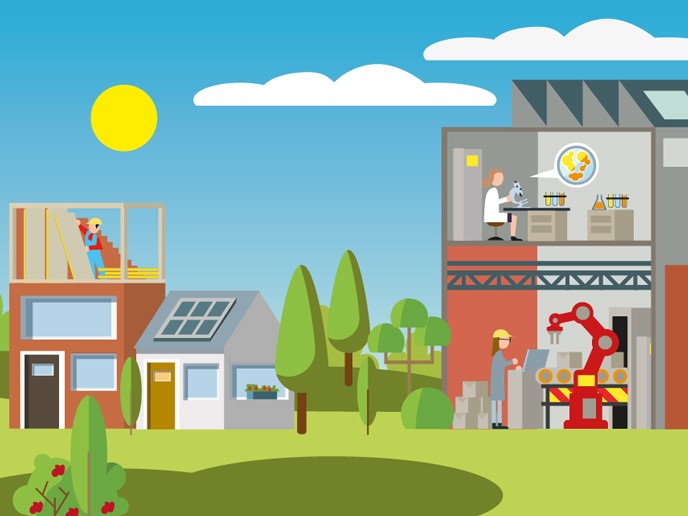Securing Europe’s industrial future through key enabling technologies and dedicated research partnerships
Technological change and the lingering after-effects of the 2008-09 Great Recession have caused many Europeans to wonder about the security of their livelihoods and living standards. To address these fears and ensure a prosperous, safe and secure future for European citizens, sustainable economic growth is essential. Whilst much of the European economy is now services-based, industrial production will continue to have an essential role in the future success of the continent and allow Europe to keep up and match its main international competitors, such as the United States and China.
Supporting industry through Key Enabling Technologies and Public Private Partnerships
The European Commission is determined to help high-tech firms meet their goals, advance their products and revolutionise their manufacturing processes to ensure Europe’s competitive advantage. Therefore, the European Commission is pursuing its Key Enabling Technologies (KETs) policy, a crucial component of the EU’s wider industrial strategy. KETs are a group of six technologies: micro- and nanoelectronics, nanotechnology, industrial biotechnology, advanced materials, photonics and advanced manufacturing processes. They have applications in multiple industries and help tackle many social challenges. The Commission’s strategy aims to help KET firms translate their knowledge base into marketable goods and services, a particular weakness for European industry. Alongside the KETs strategy, the European Commission is also boosting industry through eight research-focused contractual Public Private Partnerships (cPPPs) launched in 2013, leveraging more than EUR 6 billion of public investments to trigger additional investments for the development of new technologies, products and services. Some of the themes covered include ‘factories of the future’, energy-efficient buildings, robotics and sustainable process industries. These two strategies have been a key part of Horizon 2020 and are expected to be continued and boosted through the proposed next Framework Programme, Horizon Europe.
Demonstrating industrial innovation
Whilst there are many positive examples to showcase from these strategies, this Results Pack has chosen 10 EU-funded projects that are fantastic demonstrators of Europe’s industrial potential for the twenty-first century. Specifically, these projects are producing market-relevant outputs in the fields of manufacturing and digital industry, buildings and energy efficiency, the circular economy and biotechnologies. To provide a taste of the projects included in this Pack, the SYMBIO-TIC project created tools for robot-reluctant industries where current tasks and processes are typically considered too complex for automation, whilst the ROBOX project has demonstrated the techno-economic viability of enzymatic bio-oxidation processes as a greener alternative to traditional chemical processes. Meanwhile, the MOBILE FLIP project has identified and sustainably exploited several under-utilised sources of biomass in northern Europe, possibly bringing additional revenue streams for producers and delivering new raw materials to European industry. MefCO2 has demonstrated how carbon capture technology can be used by energy plants and other sectors to reduce CO2 emissions, while the REnnovates project has used an innovative prefabricated concept for renovating existing building stock into net-zero-energy homes. Finally, the SYMBIOPTIMA project has introduced the concept of ‘industrial symbiosis’ to the design of production management tools for increased manufacturing sustainability. On top of this and in recognition of this innovation, one of the project’s consortium members was the 2018 recipient of the Commission’s prestigious Innovation Radar Award



